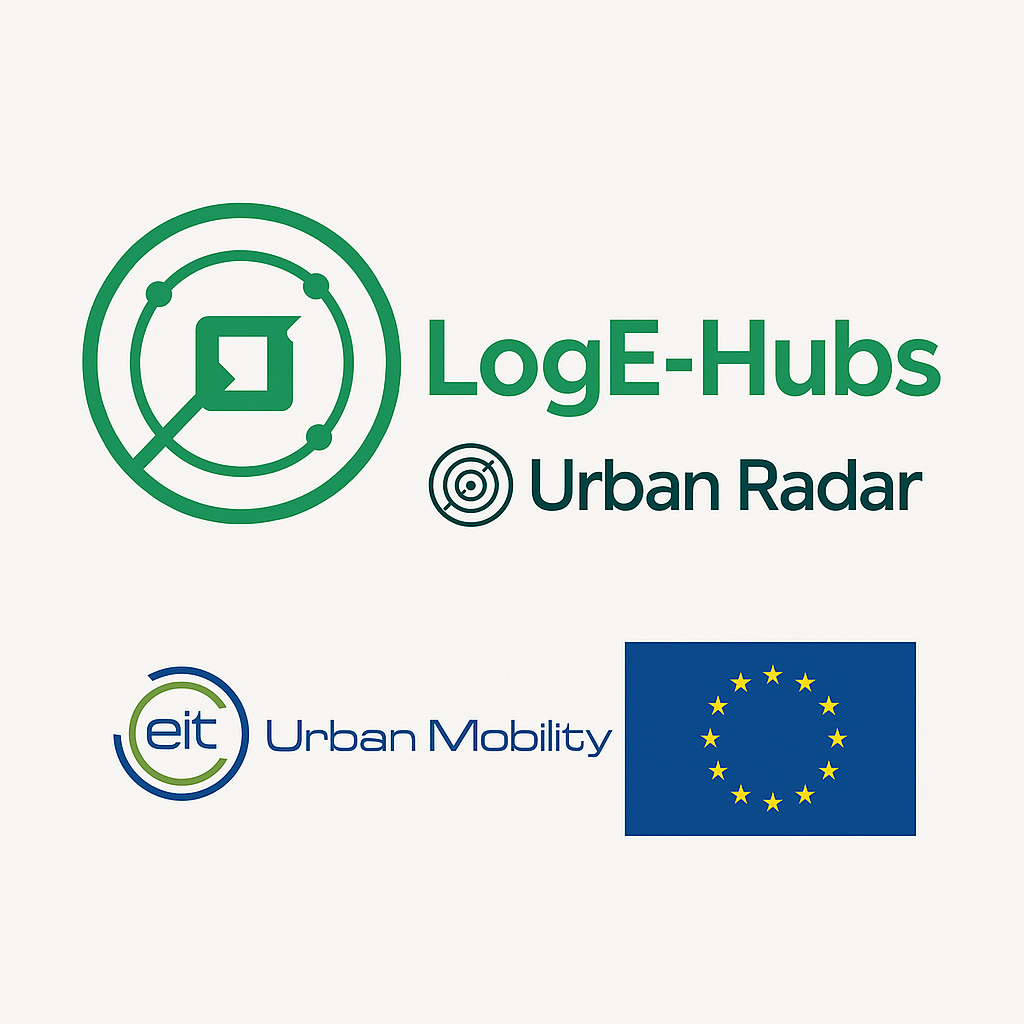


LogE-Hubs is an urban logistics innovation project funded by EIT Urban Mobility, aiming to enhance logistics hub efficiency through digital platforms and AI-driven decision-making. The project focuses on real-time data integration, sustainable urban mobility, and optimised last-mile logistics to support smart city development.
LogE-Hubs operates in two key urban locations: Las Rozas (Spain) and Braga (Portugal), where pilot demonstrations will showcase AI-enhanced urban logistics hubs. The project is led by Urban Radar (France), with dissemination support from ALICE and collaboration with municipalities and logistics stakeholders.
This initiative runs until 2025 and unites multiple partners from logistics, urban planning, and digital innovation sectors, ensuring diverse expertise and practical implementations across European cities.
Defining smart urban logistics solutions: LogE-Hubs aims to establish the necessary technical and operational requirements for scalable, AI-driven urban logistics hubs. The project explores interoperability, automated data-sharing, and regulatory integration for seamless city logistics management.
Empowering stakeholders with a data-driven approach: LogE-Hubs will introduce an open, collaborative data-sharing platform (API) to facilitate real-time decision-making among city authorities, logistics providers, and urban planners. This system will enable feasibility assessments, helping stakeholders refine logistics strategies with environmental, economic, and social factors in mind.
Supporting transition paths to sustainable urban logistics: The project’s demonstration hubs in Las Rozas and Braga serve as testing grounds for integrating logistics data with urban planning. These hubs will focus on last-mile optimisation, re-use of existing infrastructure, and minimising logistics-related congestion.
Developing new models for logistics hubs: LogE-Hubs will design innovative governance, operational, and financial models to support citywide logistics hub integration. These models will encourage public-private collaboration, maximising infrastructure utilisation and fostering urban mobility innovations.
Validating solutions through pilot deployments: Through structured feasibility assessments and stakeholder engagements, LogE-Hubs will evaluate its proposed solutions’ efficiency, demonstrating real-world applications and scalability potential.
Establishing a European logistics knowledge network: To facilitate broader adoption, LogE-Hubs will establish a knowledge-sharing network to align urban logistics innovation strategies across Europe. This includes capacity-building initiatives, policy recommendations, and guidelines for city-wide logistics transformations.